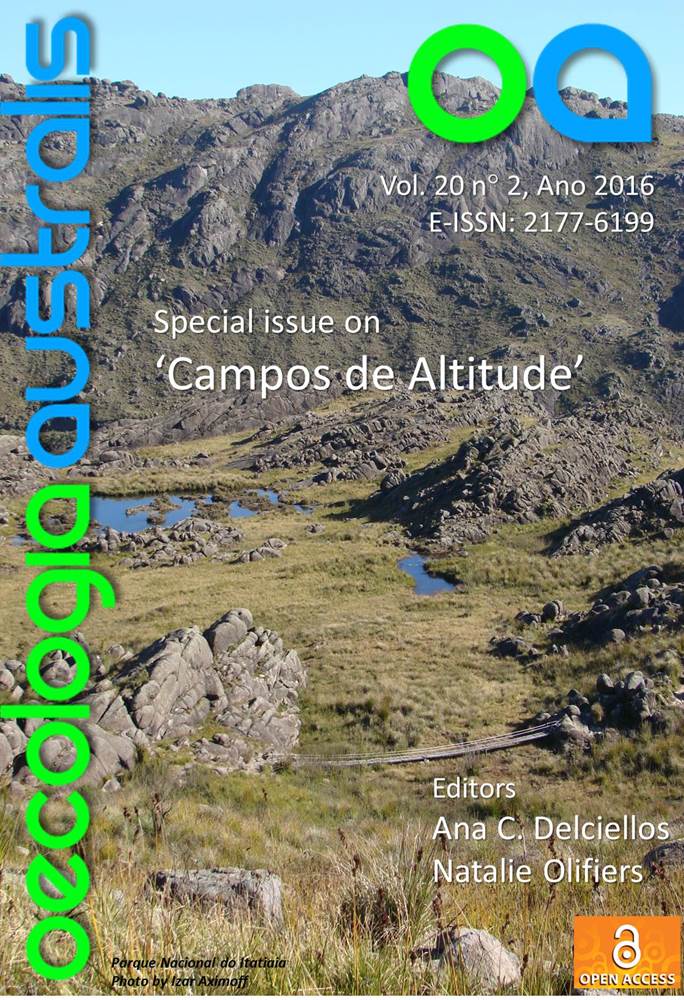CLIMATE CHANGE AND “CAMPOS DE ALTITUDEg: FORECASTS, KNOWLEDGE AND ACTION GAPS IN BRAZIL
DOI:
https://doi.org/10.4257/oeco.2016.2002.01Keywords:
Biodiversity monitoring, Campos de altitude, Climate change high altitude ecosystems, Non-forest ecosystemsAbstract
The recently published report of the Intergovernmental Panel on Climate Change (IPCC) acknowledges high altitude ecosystems in Latin America and elsewhere as some of the most vulnerable to climate change. The Brazilian Panel on Climate Change (PBMC, from the acronym in Portuguese) also recognizes the vulnerability of Brazilian high mountain ecosystems, but points out to a significant gap in data and knowledge. This paper briefly reviews the contents in these reports that refer to high altitude ecosystems and cross-compare with biological data available for such formations in Brazil. Emphasis is given to non-forest ecosystems, namely the so-called campos de altitude, and specific data and knowledge gaps are highlighted. The implementation of the existing policy called National Program for Research and Conservation of Mountain Ecosystems would be an important step to fill this gap.Downloads
Download data is not yet available.
Downloads
Additional Files
Published
2017-02-23
Issue
Section
Review


